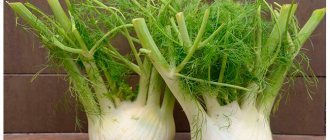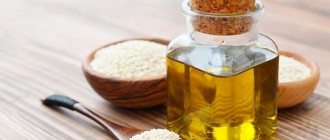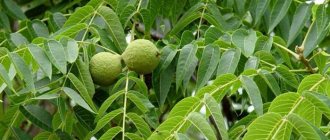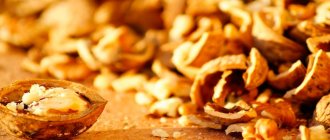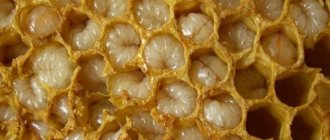Category: Care Published 05/21/2019 · Comments: · Reading time: 8 min · Views: 8,678
Coconut is the fruit of a tropical palm tree, which is not only a tasty delicacy, but also a unique nutritious product, also used in folk medicine. Surprisingly, all parts of the fruit have found their application in agriculture and industry, which has significantly increased its value. What are the benefits of coconut and what is known about these nuts?
What do coconuts look like and where do they grow?
Coconut is a round, slightly elongated fruit of the coconut palm. Its length reaches 25 - 30 cm, and its weight is 2.5 kg. People tend to think of coconut as a nut, which is considered a mistake. This is a drupe, the inner part of which is called the endocarp, and the outer part is called the exocarp. The pulp located inside is 12 mm thick and contains liquid containing nutrients, starch and proteins. This water is called edosperm. As soon as the exotic begins to ripen, it is transparent and a little cloudy. In ripe fruit, the water acquires a yellowish tint and is saturated with oils. Mixing with the pulp, the water turns into coconut milk, which has a sweetish taste.
We recommend reading: The benefits and harms of coconut milk for the body
The best soil for coconut palm growth is sandy soil. The wild variety prefers the tropics. Palm trees grow in large numbers along the coastal strip of the Malay Peninsula, Sri Lanka. The habitats of these trees include the Indian coasts and the Philippines. And in Indonesia, the processing and production of coconuts is the most developed, in which it ranks first.
What are the benefits of coconuts?
Various products derived from coconut fruits are widely used not only in cooking, but also in medicine and cosmetology.
Coconuts contain many vitamins, trace elements and minerals . These are phosphorus, potassium, vitamins E and C, magnesium, folate and fiber. Coconut milk is simply pleasant to drink - it has a light sweet taste. Its composition is dominated by fats (27 percent), with smaller quantities containing proteins (4 percent) and carbohydrates (6 percent). The coconut pulp itself strengthens the body’s protective functions, improves vision and generally replenishes energy reserves. Coconut milk is also well used by doctors: it is administered intravenously as a diuretic and antipyretic. This milk can also serve as an antimicrobial and anti-inflammatory agent.
First of all, you can “squeeze” coconut water (or coconut juice ) out of a coconut, and it is surprisingly healthy. Contained in unripe coconuts is the future coconut milk. This is a pleasant clear cool sweet and sour liquid. As for the composition, it consists of 95 percent water, 4 percent carbohydrates, and 1 percent fat and protein. However, its 19 calories (per 100 milliliters) contain a lot of sodium, magnesium, potassium and calcium. Jamaicans, for example, consider coconut water an excellent home remedy for diarrhea.
However, first of all, in countries where palm trees grow, coconut juice is used to quench thirst in the heat. At cheap prices it is simply sold on the streets for tourists with tubes sticking straight out of palm fruits. But anyone can pick coconuts for this purpose simply on the streets. For a long time now, in all countries of the world, coconut water has become a medical preparation: along with glucose, it is administered intravenously - this stops dehydration of the body and maintains fluid balance.
When the coconut ripens, this water turns into milk after the formation of fats in it. Coconut milk is a fragrant and sweet substance. And it is also good medicine :
- has a beneficial effect on the functioning of the kidneys, not only fighting kidney infections, but also being able to dissolve stones in them;
- helps in the treatment of diabetes;
- normalizes the functioning of the cardiovascular system, blood circulation and improves blood composition;
- Regular consumption of coconut juice or milk reduces cholesterol levels in the blood, and therefore serves as a prevention of atherosclerosis;
- nourishes people with heavy physical activity with energy and strength.
As the life of the coconut progresses, its milk is converted into coconut pulp. Just in our latitudes, when we buy a coconut, we often get the fruit with pulp, and not with juice or milk. You can prepare many healthy, tasty and interesting dishes from coconut pulp.
But the famous coconut oil is made from the driest part of the coconut fruit. It can also be eaten. But it is mainly used for cosmetic purposes. Even in our latitudes, most have already realized that it is difficult to find a better product for caring for the skin of the face, body and head, as well as hair. It perfectly controls the level of sebum, tones, refreshes and restores the natural elasticity of the skin.
Coconuts https://greenplaneta.org/kokos/
Vitamins and minerals in coconut
The benefits and harms of coconut for the human body are being studied by scientists. They claim that the composition of its water resembles the composition of blood. Edosperm contains an amount of useful elements equal to those required by the body. Thanks to its rich composition, drupes can be used in many ways. It contains:
- amino acids;
- antioxidants;
- healthy fiber;
- essential oils.
Exot boasts a rich vitamin composition.
Per 100 g of product there are:
| Vitamin | Amount, mg |
| IN 1 | 0,066 |
| AT 2 | 0,02 |
| AT 3 | 0,3 |
| AT 6 | 0,054 |
| AT 9 | 26 |
| WITH | 3,3 |
| E | 0,24 |
| TO | 0,2 |
| RR | 0,54 |
| Kholin | 12,1 |
The benefits of coconut for the body are enhanced by its rich mineral composition:
| Name | Amount, mg per 100 g |
| Potassium | 356 |
| Calcium | 14 |
| Magnesium | 32 |
| Sodium | 20 |
| Manganese | 1,5 |
| Copper | 0,4 |
| Selenium | 0,022 |
| Phosphorus | 113 |
| Iron | 2,43 |
| Zinc | 1,1 |
Due to the rich mineral content of drupe water, it has beneficial properties for active people and athletes, replacing sports drinks.
Benefits of coconut for the body
Having examined the rich and optimized composition of coconut, we will find out what exactly coconut is good for the human body.
The benefit of coconut lies in its universal qualities, which allowed sailors to successfully survive on deserted islands. And local residents have no problems with muscles, joints, or heart. The same cannot be said about modern man.
General benefits of coconut for humans
Due to its beneficial effects on the body, coconut is recommended in the following cases:
- In general, as a necessary product for the entire musculoskeletal system.
- During the period of teething in a baby, in order to form healthy tooth enamel
- Both men and women will benefit from coconut when switching to a low-cholesterol diet. Despite all the fat content of coconut, it has no cholesterol at all.
- For diseases of the heart and coronary vessels. It has been established that coconut fat is not deposited on the walls of blood vessels. During research on the islands of Polynesia, scientists were surprised to find an almost complete absence of cardiovascular diseases and local residents.
- Lauric acid plays an important role in reducing the risk of CVD. It stabilizes blood cholesterol levels
- For those who refuse refined sugar, as the fruit contains a lot of natural fructose.
- For athletes and people leading an active lifestyle. To provide the body with the necessary substances after intense training.
- As a natural antiseptic to increase the body's resistance during viral infections, to strengthen the immune system and to suppress the proliferation of fungi and bacteria.
- To protect the walls of the stomach and stimulate the intestines.
What exactly is coconut good for men?
- For bone mineralization, ensuring healthy joints and cartilage. It will be useful for men who have to carry heavy objects.
- As a stimulant of sexual activity
- To remove spasms and reduce muscle pain. For men doing heavy physical work
- How to prevent heart attacks and strokes.
What are the benefits of coconut for women?
- As a powerful prevention of osteoporosis, preventing the leaching of calcium from bones. Which is especially important for women after 40 years.
- When brittle nails and hair appear.
- As a natural cosmetic for hair and skin. Women can use coconut oil to treat their face, hands, and split ends after shampooing. You can even anoint yourself from head to toe. The same lauric acid perfectly moisturizes the skin and nourishes hair and nails.
- Coconut oil can smooth out facial wrinkles. However, we are talking about cold-pressed oil. And more about him later.
- In case of toxicosis, mineralized coconut water reduces attacks of nausea and perfectly nourishes the body of a pregnant woman.
How many calories are in coconut
Coconut is a unique product. This is high-calorie pulp and water, which contains virtually no calories.
Calorie content and nutritional value (BJU):
| Name | In water, g | In pulp, g |
| Squirrels | 4 | 3,33 |
| Fats | 27 | 33,49 |
| Carbohydrates | 6 | 15,23 |
| Calories | 360 | 16,7 |
The calorie content of a dry tropical delicacy is even higher than that of pulp.
It is 590 kcal per 100 g of product.
Chemical composition, calorie content and BJU of coconut
All edible parts of the coconut fruit are extremely nutritious and beneficial to human health. Juice is one of the richest sources of electrolytes that ensure the normal functioning of muscles and nerve cells. The pulp contains a large amount of lauric acid, which is necessary for strong immunity, and the oil contains natural lipids in a form easily accessible to the body, which improve metabolism and promote weight loss.
Coconuts are present in a wide variety of diets
The diverse chemical composition of coconut determines its high nutritional value. The nutrient content of the nut is as follows (per 100 g of product):
- protein – 3.3 g;
- carbohydrates – 15.2 g;
- fats – 33.5 g.
The product also contains:
- nicotinic and pantothenic acids, necessary for proper metabolism;
- folic acid, which is responsible for the normal functioning of the circulatory and immune systems;
- potassium and magnesium, necessary for the health of the heart and blood vessels;
- iodine, necessary for the proper functioning of the endocrine system;
- selenium, which has antioxidant properties and protects the body from free radicals;
- fiber, which stimulates the functioning of the digestive system.
To understand how beneficial the exotic nut is for health, it is worth finding out what vitamins are in coconut. Each fruit contains:
- vitamin C, which stimulates the immune system and activates the body's defenses;
- vitamin K, which is involved in the formation of bone tissue and ensures the health of the circulatory system;
- vitamin E, necessary for the beauty of the skin, health and strength of nails and hair, and also slows down aging;
- B vitamins involved in all metabolic processes occurring in the body.
When including a nut in the diet, it is necessary to take into account such a nuance as its high nutritional value: the calorie content of fresh coconut is 362 kcal per 100 g of product, while dried coconut has an even higher calorie content - 660 kcal per 100 g of product. The glycemic index of the product is 45 units.
Useful properties of coconut
The health benefits and harms of coconut directly depend on the content of vitamins, minerals and nutrients in it. They are the main substances that are required for the proper functioning of internal organs. For athletes, especially weightlifters, the benefits of coconut pulp are valuable. It is rich in proteins, the properties of which help you gain muscle mass faster, and a large amount of calories saturates the body with energy. Coconut is an excellent remedy for people who want to gain the missing weight without harm to their health.
The benefits of coconut pulp are that it:
- strengthens the immune system;
- improves eye health and improves vision;
- normalizes heart function and cardiovascular system functions;
- is a preventative against the harm of malignant neoplasms.
The beneficial properties of coconut pulp do not end there. Like the liquid, it is an anti-inflammatory and antibacterial agent. In general, coconut can be classified as a natural antioxidant.
Milk has diuretic properties. It helps improve the functioning of the kidneys and central nervous system. It is recommended to drink milk to strengthen your teeth and prevent diseases. The liquid contains cytakins, which prevent the harmful formation of cancer cells. Due to the healing properties of milk:
- has a rejuvenating effect;
- is a prophylactic agent for thrombosis;
- improves metabolism and digestion process;
- strengthens the immune system;
- reduces cholesterol and blood sugar;
- normalizes blood pressure;
- prevents the development of atherosclerosis;
- Helps cure sore throat and other colds.
The benefits of young coconut largely lie in its water. It is found only in unripe nuts and is very different from milk in its sweet-sour taste and calorie content. This is an excellent thirst quencher that has beneficial properties that restore water balance in the human body. Among its beneficial properties is the ability to eliminate infections in the bladder. The composition of drupe water can be compared to saline solution.
The benefits of coconut water for delicate skin are great. It helps relieve lethargy, tones the skin, and stops age-related changes. In adolescence, it is used to eliminate acne.
Benefits of coconut for women
The benefits of coconut for a woman’s body are unconditional. Its beneficial substances help strengthen hair. Coconut enriches hair with nutrients and restores it after damage. The beneficial properties of essential oils, milk, water and pulp are used in cosmetology. They are added to masks with anti-aging properties, creams for dry skin, shampoos and rinses. Facial products smooth out and prevent the appearance of age-related wrinkles and tone the skin.
Without any harm, the health benefits of coconut for older women are significant. Its use in food helps improve the functioning of the urinary and reproductive systems, and also delays the onset of menopause.
Benefits of coconut for men
The benefit of coconut for a man’s body is that it is a strong aphrodisiac and strengthens the reproductive system. Exot serves as a prophylactic for prostatitis and diseases of the urinary system. Despite the fact that coconut has health benefits for men, in some cases it can also cause harm. Basically, this occurs with individual intolerance to the product and with obesity.
What is coconut water and what properties does it have?
Water is present only in unripe fruits, it is strikingly different from milk, which is formed at the stage of mixing water and pulp, in taste and has almost zero calorie content. Sweet-sour and cool, it does not contain harmful fats.
The substances present in coconut water will give the product properties similar to saline solution. It exhibits the following useful qualities:
- perfectly quenches thirst;
- restores the body's water balance;
- eliminates infections in the bladder.
Fresh fruit has the maximum value, but it is not always possible to purchase one. All the beneficial properties of coconut water are preserved during the pasteurization process, which takes place without the use of any dangerous additives or impurities.
At what age can children eat coconut?
The benefits of fresh coconut are also significant for children. The beneficial calcium it contains plays an important role in the development of the child's teeth and bones. The tropical nut promotes the normal growth and development of the baby, saturates it with energy and nutrients. Drupe oil is a mild, natural remedy that can be used to care for delicate baby skin. But when introducing the product into a child’s diet, it should be taken into account that the child’s stomach is very susceptible. Therefore, it is necessary to give exotic to children from 1.5 to 2 years of age. If a child has an allergic reaction to any food, it is better to delay or minimize the consumption of the fruit. It is recommended to introduce exotic fruits into children’s diets from the age of 3, after checking for the absence of allergic reactions.
Health Benefits of Coconut Meat
Coconut meat can benefit your health in several ways.
Much of the research on the benefits of this tropical fruit has focused on its fat content.
May improve heart health
Coconut meat contains coconut oil, which can increase HDL (good) cholesterol levels and lower LDL (bad) cholesterol levels. Improving these indicators can reduce the risk of developing cardiovascular disease ().
In one 4-week study, a group of 91 people was divided into three subgroups. Some were given 50 ml of natural coconut oil daily, others olive oil, and others unsalted butter. Subjects in the coconut oil group showed a significant increase in HDL (good) cholesterol levels compared to those taking butter or olive oil ().
An 8-week study in 35 healthy adults showed similar results, finding that 1 tablespoon (15 ml) of coconut oil taken twice daily resulted in a significant increase in HDL cholesterol levels compared to the control group ().
Another 8-week study noted that people who ate 200 grams of porridge made with coconut milk had a significant reduction in LDL (bad) cholesterol levels and an increase in HDL (good) cholesterol levels compared to those who ate porridge made with coconut milk. soy milk ().
May promote weight loss
Coconut pulp can help you lose weight.
Research shows that the MCTs in this fruit may help promote feelings of fullness, burn calories and burn body fat, all of which can promote weight loss (, ,).
Additionally, the high levels of fiber in coconut meat may promote feelings of fullness, which may help prevent overeating (,).
A 90-day study of 8 adults found that adding 100 grams of fresh coconut meat to a standard daily diet resulted in significant weight loss compared to adding the same amount of peanuts or peanut butter ().
Keep in mind that these studies used very large amounts of coconut oil and MCT oil, so it is unclear whether eating less coconut meat would have the same effect.
May help digestion
Coconuts are high in fiber, which helps increase stool bulk and supports intestinal motility, promoting digestive health (,).
Because these fruits are also high in fat, they can help your body absorb fat-soluble nutrients, including vitamins A, D, E, and K.
In addition, the MCTs in coconut meat have been shown to improve gut flora, which may help protect against inflammation and conditions such as metabolic syndrome ().
What's more, coconut oil can reduce the growth of harmful yeasts such as Candida albicans, which can cause serious infections ().
Other useful properties
Eating coconut meat may have other beneficial effects, including the following:
- May stabilize blood sugar levels . This fruit may lower fasting blood sugar levels and improve gut flora, helping control blood sugar levels (, ,).
- May strengthen the immune system . The manganese and antioxidants in coconut can help strengthen your immune system and reduce inflammation. The MCTs in this fruit may also have antiviral, antifungal, and antitumor properties (, , , ).
- May benefit your brain . The MCTs in coconut oil provide an alternative source of energy that may help people with memory or brain problems such as Alzheimer's disease (,).
Summary:
The MCTs and fiber in coconut meat may help promote weight loss, heart health, digestion, brain health, blood sugar and immunity.
The benefits and harms of coconut for weight loss
The benefits of coconut for weight loss are enhanced by lauric acid, which is the main component that helps in the fight against excess weight. Among the properties of dodecanoic acid are:
- the ability to burn excess fat;
- improvement of digestive system processes;
- acceleration of metabolism;
- decreased feeling of hunger.
Due to its high calorie content, exotic fruit tends to quickly saturate the body, but thanks to the fiber, it does not gain excess weight. Vegetable fats are converted into energy and are not stored in fat folds.
Despite the benefits of coconut, harm from its use is possible if you have health problems. Its excessive consumption can lead to high cholesterol, disrupt heart function and cause pathologies. You should discard the product if your body is intolerant of its components or if you are obese.
Coconut can be harmful
The biggest negative you can get from a coconut is from its water. Due to heavy consumption, it will significantly increase the level of potassium in the blood and can lead to acute kidney failure, arrhythmia, fainting and even death . True, fainting from drinking several liters of coconut juice was recorded only once in the world, and that was due to the fact that before that the person was engaged in heavy physical exercise. However, be careful: in the countries of coconut trees, medicine is poorly developed and other sad cases may simply not have been recorded or taken into account.
Features of eating coconut for diabetes and gastritis
Diabetics should consume coconut with caution. You can introduce pulp into your diet in small quantities. The benefit of coconut for the body is also that the manganese it contains reduces blood sugar. For diabetes, you can use exotic water, which tends to relieve fever. But you should avoid sugar, butter and drupe milk. These parts of the tropical fruit are incompatible with diabetes.
For stomach diseases, including gastritis and ulcers, it is recommended to consume milk and dairy products. For people who are intolerant to this type of food, coconut milk is an excellent replacement option. It contains coarse fibers that have a positive effect on the digestive system and improve metabolic processes. Another useful property of tropical milk is its ability to normalize the intestinal microflora without harm to the gastrointestinal tract.
The exotic fruit has antibacterial properties, so it is recommended for use by anyone who has gastritis. But for ulcers, it is necessary to administer a moderate amount of the product so as not to overload the stomach.
Composition and benefits of coconut
Coconut is a tropical fruit that is famous for its nutritional properties, unique taste and benefits for human health. The top of the nut is covered with a shell with hard fibers. Inside there is tender milky pulp, which is eaten fresh or dried, as well as sweetish coconut juice. The fruits grow in countries with tropical climates.
Before answering the question of what benefits coconut has for the body, you need to know what it consists of. The drupe contains fatty oils, vitamins B, E and C, folic acid, calcium, magnesium and iron, sucrose, some fructose and glucose.
To understand how the nut is beneficial for the human body, you need to study the properties of coconut. The exotic fruit has the following effects:
- strengthens the nervous system;
- fruit pulp improves digestion;
- normalizes blood circulation;
- heals the reproductive system, increases sexual desire;
- improves vision;
- normalizes blood sugar levels;
- improves metabolism;
- slows down skin aging and restores its freshness.
Coconut pulp is useful because it does not contain cholesterol, but contains fiber, which stimulates intestinal function. It removes waste, toxins and other harmful substances from the body, thereby improving well-being. Activated carbon is produced from the nut.
It is impossible to fully answer the question of how coconut is beneficial without mentioning another valuable component - saturated fatty acids. Lauric and caprylic acids are of particular importance. They increase immunity and have a pronounced antimicrobial, antiviral and antifungal effect.
It is useful for a diabetic to know that coconut is classified as a carbohydrate with a low glycemic index. In pulp this indicator is 45. Glycemic index in milk is 40. Calorie content of the product is 354 kcal per 100 g.
Applications of coconut
Coconut is a unique product with a variety of unique properties that are used in various fields. Its fibers are used to make twines, ropes, and carpets.
The product is added to the substrate for flowers and plants intended for home cultivation.
Souvenir decorations and dishes are made from the shell. This is an excellent material for making charcoal.
Coconut oil is considered one of the most valuable for cosmetic use: it is widely used to add to masks, face and body creams, shampoos and other hair products. In its pure form, it is used in massage parlors, including to combat cellulite.
In the culinary field, desserts are prepared from tropical delicacies. The components of the drupe are added to baked goods. And from coconut shavings, pastry chefs create interesting decorations for cakes, buns and other delicious products.
Nutritional value, composition and calorie content
Coconut meat is high in fat and calories, and moderate in carbohydrates and protein.
An 80-gram serving of fresh, grated coconut contains ():
- Calories : 283 kcal
- Protein : 3 grams
- Carbohydrates : 10 grams
- Fat : 27 grams
- Sugar : 5 grams
- Fiber : 7 grams
- Manganese : 60% of recommended daily intake (RDI)
- Selenium : 15% of RDI
- Copper : 44% of RDI
- Phosphorus : 13% of RDI
- Potassium : 6% of RDI
- Iron : 11% of RDI
- Zinc : 10% of RDI
Coconut meat is rich in several important minerals, especially manganese and copper. While manganese supports enzyme function and fat metabolism, copper promotes bone formation and heart health (,).
Fat
Coconut is a unique fruit due to its high fat content. About 89% of the fat in its pulp is saturated ().
Most of these fats are medium chain triglycerides (MCTs), which are completely absorbed in the small intestine and are used by your body for energy ().
Cellulose
Just 80 grams of shredded coconut meat supplies the body with 7 grams of fiber, which is more than 20% of the RDI ().
Most of this fiber is insoluble, meaning it is not digested in the gastrointestinal tract. Instead, it promotes food movement through the digestive system and gut health.
Summary:
Coconut meat is especially rich in calories, saturated fat and fiber. It also contains various minerals, including manganese, copper, selenium, phosphorus, potassium and iron.
How and with what do you eat coconut?
Recommended reading: Benefits of strawberries for the body
Thanks to its healing properties, taste and minimal potential for harm to health, the tropical delicacy occupies a significant place in cooking. Adding its healthy pulp adds an exotic touch to appetizers, salads, and main courses. Fetal milk is used to prepare desserts, drinks, and soups. Coconut is combined with poultry meat, especially chicken and rabbit. It is added to porridge. Seafood, potatoes and peppers go well with tropical fruits. It is compatible with other exotic fruits, citruses and strawberries. The combination of coconut and spices is interesting. And the combination with chocolate and caramel is used to prepare confectionery products.
We recommend reading: Potatoes: beneficial properties and contraindications
How to break a coconut at home
When starting to open an exotic, you need to prepare two knives: a small one and a large one with a wide blade.
Open as follows:
- Select the most pronounced point.
- Pry it open with a small knife.
- Pour the milk through the hole formed.
- While rotating the coconut, tap it with the flat side of the blade of a large knife for 1 - 2 minutes.
- After a crack appears, continue tapping, turning the fruit around its axis until a crack appears.
When the crack gets bigger, you can try to open the coconut by breaking it.
Video on how to open a coconut
Secrets of properly opening a coconut
Opening a coconut is not an easy task. After all, as we have already said, its shell is very dense and rough to reliably protect its valuable insides.
- The simplest and most straightforward way to open a coconut is to break it. This can be done by hitting it hard with something heavy, such as a hammer. However, this is quite dangerous because the coconuts can slide and jump off. So before such an opening, the fetus should be securely fixed.
- Cutting with a hacksaw is also an undercut method for opening a coconut, because this way the juice spills out of it.
- In order to preserve coconut milk before opening, you need to find 3 dark spots on it at the base. They should be pierced with a sharp object and the valuable liquid should be poured out. You can make only 2 holes, insert a straw into one of them, and just drink the juice of your coconut.
- After this, you can safely split the coconut with a knife, which should be struck in the area located 1/3 of the dark holes to its other end. You should hit with the blunt side of the knife. After placing it on a flat table. But that's not all: then you should slightly rotate the coconut around its axis and hit it again. Repeat this procedure until a crack appears in the coconut. You need to insert a knife into it at the end - this way the coconut will open completely.
After opening the coconut, pay attention to the condition of its pulp. Ideally, it should be pure white, elastic, soft, and easily removable. If any of these indicators are not normal, then the coconut is still green. But in principle you can still eat it.
Coconut palms https://m.iosdesk.com/bizhi/11402.html
Possible harm of coconut and contraindications
If you don't overuse coconut, you don't have to worry about possible harm from its use. Daily rate of exotic consumption in grams:
| For men | 300 |
| For women | 200 |
| For children from 3 to 10 years old | 50 — 100 |
Excessive consumption can cause hypervitaminosis. And due to the increased calorie content, there is a risk of gaining excess weight. You should avoid introducing the product into your diet if you have a personal intolerance. Diabetics should avoid coconut milk completely.
Potential Harm of Coconut Meat
Although coconut meat has many beneficial properties, it can also have disadvantages.
It contains significant amounts of saturated fat, which is still controversial in scientific circles.
A study of more than 115,000 healthy adults found that high saturated fat intake was associated with an increased risk of developing cardiovascular disease ().
Although the impact of saturated fat on the development of heart disease is still debated, research suggests that replacing saturated fat with unsaturated fat may reduce the risk of developing heart disease ().
Some scientists argue that although coconuts do not appear to harm heart health, most people do not eat enough of them to experience any negative effects ().
Considering that coconut meat may also have a positive effect on your heart, more research is needed regarding the effects of its consumption on heart health.
It should be noted that coconut meat contains a lot of calories. Excess consumption can lead to unwanted weight gain if you don't restrict calories elsewhere.
Finally, some people may be allergic to coconut. However, this type of allergy is rare and is not always associated with other types of nut allergies ().
Summary:
Coconuts are high in saturated fat, a controversial type of fat that can be harmful when consumed in large quantities. Moreover, coconut meat is quite high in calories and some people may be allergic to it.
How to choose the right coconut in the store
When purchasing coconuts, you should ask how long ago they were supplied. Then you need:
- Try the fruit by weight: a high-quality coconut will be heavy if it is small in size.
- Shake the drupe. If you hear gurgling and splashing, it means the nut is ripe. If you don’t hear anything, the liquid may have leaked due to possible damage during transportation or evaporated as a result of long-term storage.
- Examine the coconut for dents, cracks, or other damage that could cause the edible parts of the nut to become unsterile and begin to rot.
- Check whether the coconut points are damaged during transportation.
- A quality nut should be dry.
When buying exotic, do not forget that excellent appearance cannot fully guarantee excellent taste.
Coconut is a heavenly gift...
Coconuts were discovered a long time ago and it is not known exactly where their homeland is. Malaysia and New Guinea are competing for this title. However, they grow in many warm countries, because by nature they have a persistent distribution.
Popular articles now Martsinkiv utility workers demolished half of Frankivsk: this is illegal
A student married an 80-year-old man and looks happy: she fell in love without memory
A happy daddy showed how to greet his wife from the maternity hospital: a red carpet, an orchestra and a motorcade with Peppa Pig
TV star dies after being vaccinated against coronavirus
show more
Scientists say that the reason coconut fruits have such a hard shell (which makes them difficult to open) is so that the seeds inside them can float across the waters undamaged, reaching fertile lands. Thus, it is assumed that coconuts made their way across the seas and oceans for thousands of thousands of kilometers and spread to different islands and shores.
For residents of various hot countries, coconuts are a real gift from heaven. Here coconut palms are considered the tree of life. Its fruits are cut into many ingredients and used not only as food, but also as medicine and a source of profit, exported to countries like ours where coke palms cannot grow due to natural reasons.
How and where to store an open coconut
The product of the tropics is not subject to long-term storage. A whole nut can be kept for no more than a month without losing its beneficial properties. The storage of an open coconut is 2 - 3 days, then it begins to ferment.
Milk should be used immediately after opening. You can store it for only a week by sealing the container with it.
The shelf life of the pulp is 7 days. In this case, it should be filled with water. Dried coconut flakes can be stored for the longest time. It can be kept for about a year by placing it in a cool, dry place, tightly closed.
